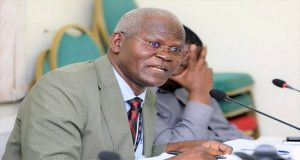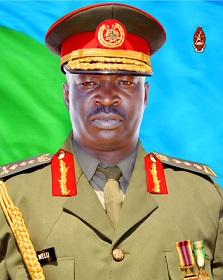
By Ali Ssekatawa
At the conclusion of Climate Summit Conference of Parties (COP) 28 in Dubai, United Arab Emirates, in December 2023, member states committed to rapidly decarbonising their energy systems to keep global warming within the 1.5°C threshold. This requires accelerating the clean energy transition on both the demand and supply sides, ensuring that this transformation is just, equitable, and mindful of energy security.
Since then, approximately 9,100 km of crude oil pipelines and 228,700 km of gas transmission pipelines are under construction globally, reflecting a 30% increase in crude oil pipelines and an 18% increase in gas lines, according to the latest figures from the Pipeline & Gas Journal. Additionally, 21,900 km of crude oil and 12,900 km of gas pipelines are in the planning stage. Asia leads this development, followed by the United States and Australia, which are focused on boosting export capacity from the Permian Basin and Haynesville Shale to capitalise on European and Asian markets. Currently, there are 461 active oil and gas pipelines worldwide, with an additional 34 under development. The United States leads with 147 active pipelines and eight more in development.
In Africa, the major pipeline projects include the 1,950 km Niger-Benin Oil Pipeline, which was commissioned early this year and the 1,443 km East African Crude Oil Pipeline (EACOP) currently under construction. Despite facing misguided opposition, some of which bordering on racism and colonialism, disguised as the #StopEacop movement, the EACOP project has continued to make considerable progress, achieving key milestones. Since being granted a construction license in 2023, the EACOP Company has steadily advanced its work.
The above developments have exposed the ideological shallowness of the sponsors of this campaign. The spectre of Ugandan University students being hounded in hired “matatus” -read taxis, with prepared placards, talking points, brand new T-shirts, ostensibly to stop Uganda’s oil production is a sad reality. Sad, because the said students, are not only products of Universal Primary Education, and Universal Secondary Education like most of us, but are current beneficiaries of free or discounted student loans from Government. How can they not add the dots and ask their sponsors why they are not stopping projects in their own backyards? Talk of a man cutting branch of a tree on which he is sitting!
In 2024 alone, the United Kingdom granted 31 new exploration licenses for 88 blocks in the North Sea, while Norway auctioned 37 blocks in the Barents and Norwegian Seas. Ukraine auctioned 11 blocks, Indonesia auctioned 3, and Nigeria offered 19 onshore and 17 offshore blocks for exploration. Offshore Energies UK, the agency responsible for managing the country’s petroleum activities, justified the new round of licensing as a move that “strengthens energy security and boosts business confidence across all sectors.”
The EACOP, a USD 5 billion mega infrastructure project, will serve as a conduit for transporting Uganda’s crude oil from the Albertine Graben, starting at Kabaale in Hoima District, to Tanzania’s Tanga Port, where it will be shipped to international markets once completed.
As of 30th August 2024, the EACOP had successfully compensated 97% of Project Affected Persons (PAPs) in Uganda and 99% in Tanzania, with all 177 primary residents in Uganda receiving new homes. The remaining 3% are pending due to different legal issues. A major milestone was reached with the completion of the thermal insulation plant in Tanzania in March 2024, and coating/insulation of line pipes is ongoing. Engineering, Procurement, and construction activities are progressing in London and Dar es Salaam, with local companies playing a larger role, creating jobs and training opportunities for Ugandans and Tanzanians.
Given the overall progress of the project, it would be foolhardy for opponents to continue dreaming of stopping it. #StopEacop is a veiled underground colonial movement fully funded to sabotage Uganda’s oil production. But they have learnt nothing and forgotten nothing from history. After the abolition of slavery in 1865, the secessionists found themselves fighting a Lost Cause—a futile battle against inevitable reality. #StopEacop campaigners now find themselves in a similar dilemma and can fortunately learn a lesson from history, if they were not insufferable!
Mr Ali Ssekatawa is the Director Legal and Corporate Affairs at the Petroleum Authority of Uganda.
Email: corporateaffairs@pau.go.ug








